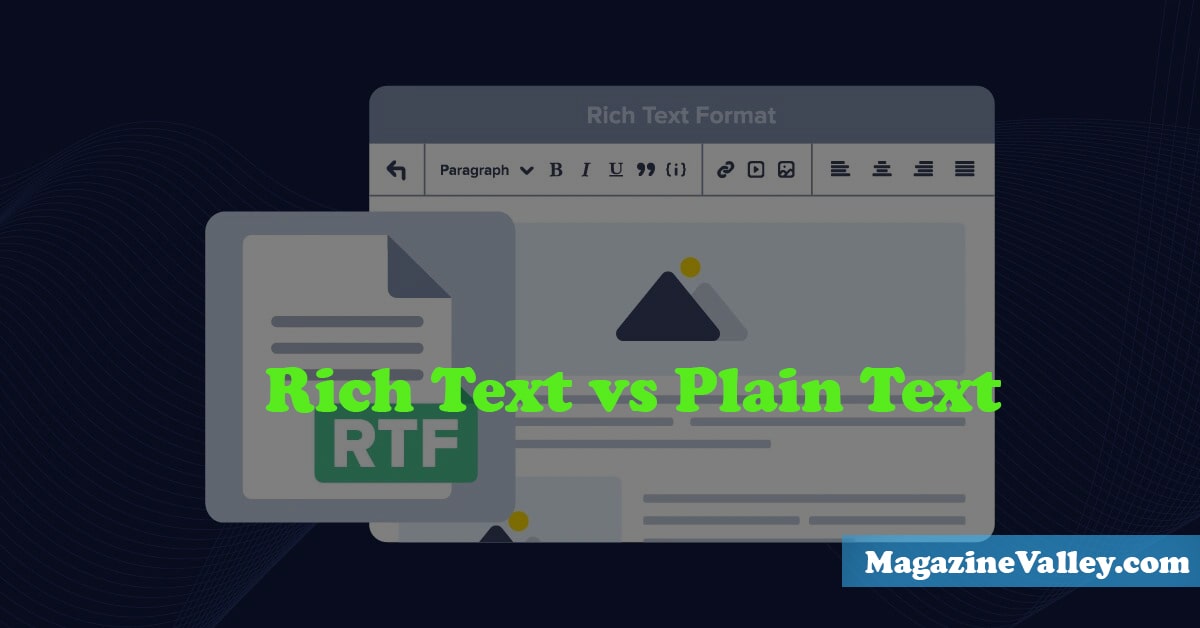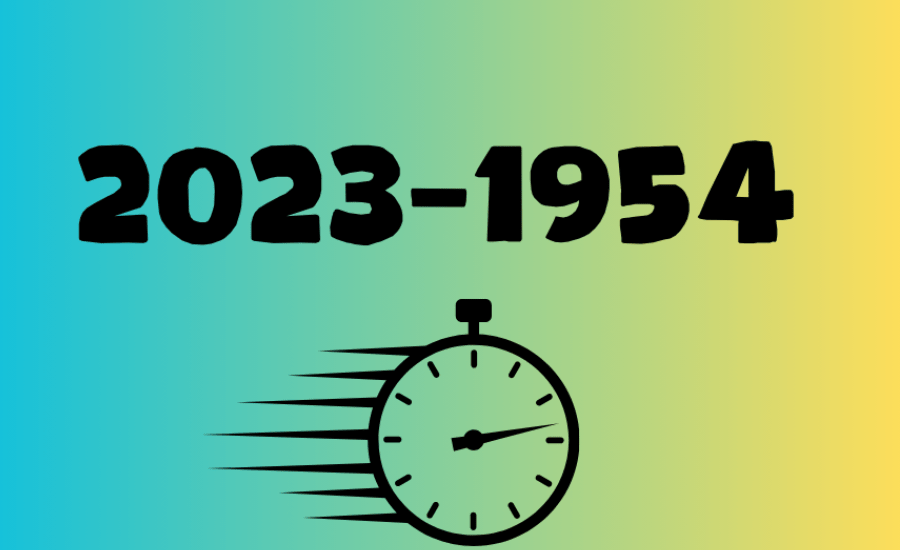Education
7 Steps to Conduct Data Analysis in Management Science Dissertation

Data analysis is an important aspect of a master’s or PhD dissertation. It is the analysis of the data that allows you to answer all your research questions. Conducting a good analysis is important, but only a few know how to do it for their management science dissertation. Management is a field that mostly contains qualitative data, and doing the analysis of qualitative data is a very hectic process. It takes time to take all the steps and analyse the data.
Do you know what those steps are? Well, you do not need to answer. Your presence on this blog tells it all. There is no need to worry. In today’s article, we are going to discuss the top 7 tips for conducting data analysis for a management science dissertation. However, before moving on to the tips, let’s describe their importance.
Why is analysing the data for a dissertation important?
Many students ask a question about the importance of data analysis. They inquire why they should analyse the data. Well, in management and business studies, data is everything. Data is the most valuable commodity in businesses all around the world. This is just one reason for the importance of data analysis. Some other reasons are as follows:
- Perfectly conducted data analysis for a management science dissertation helps to explore all the hidden patterns and themes.
- Data analysis allows the researcher to answer all the research questions formulated at the start of the research process.
- Lastly, data analysis helps in making informed decisions about the research problem under investigation.
7 steps to conduct an effective data analysis
Conducting data analysis is undoubtedly essential when working on a dissertation, especially a management science dissertation. As the researcher, you must not miss large chunks of information, patterns, or themes hidden in your data, which can guide you to solve the problem. For this, you need to know the steps involved in the data analysis process. Thus, a brief description of all 7 steps is as follows:
Take a look at the research questions
First, you need to take a look at your research questions. This is necessary to know to remind yourself of the goal of data analysis. As the goal of a data analysis process is to answer the set research questions at the start, you must know what they are. It is because after coming this far in your management dissertation, you must have forgotten them. As the researcher, you may have forgotten why you are going to analyse the data. So, go through the questions.
Set realistic goals
The next step in conducting data analysis is to set realistic goals for your analysis. Pen down what you want to achieve through the analysis of the collected data. If you want to solve a particular problem related to management science, then set that problem as your goal. Having a goal keeps you motivated all the time and pushes you to work on the analysis with a rigorous approach and mindset. Thus, define the goals.
Take a look at the data
Step no.3 is about having a thorough look at your research data. It is necessary to familiarise yourself with the data you have. By doing this, you get an initial idea of what type of data you have and how you can analyse it. For example, if your data is qualitative, then you need to think about qualitative data analysis techniques. Thus, it is necessary to go through the data prior to the analysis.
Clean the collected data
Once you have gone through the data, you may have realised that there are some errors and omissions in the data. If you have felt so, then get rid of those errors from your management science dissertation data. It means identifying all the outliers, missing values, and bugs in the data and eliminating them. Thus, go through the data and clean it well by rooting out all the missing values and adding appropriate values.
Select the analysis method
The 5th step in the data analysis is to choose an analysis method. An analysis method tells how you need to approach the data and analyse it. The selection of the analysis methods depends mainly on the data type. If the data is quantitative, you choose from available quantitative analysis methods. However, if the data of the management science dissertation is qualitative, you choose from available qualitative methods. Whatever the case, make sure that you make the right choice.
Analyse the data
The last step in the data analysis process is the analysis itself. Once you have selected the right analysis method, then do the analysis. However, before analysing the data, make sure that you know all the dos and don’ts of the chosen method. Knowing the procedure of chosen data analysis method helps to analyse the data better. If you do not know the procedure, contact Affordable Dissertation Service in the UK and ask it to help you understand it. Its writers will convey the necessary things and can even analyse your data on your behalf.
Share the analysis results
After the analysis, the only thing now remains is the sharing of the results in your management science dissertation. The analysis of the results mainly comes in the 5th chapter of the dissertation. As the researcher, make sure to add some presentational devices to your dissertation’s analysis chapter. The presentational devices are graphs, charts, figures, and tables. The addition of these things makes the analysis look organised and also explains things in a very well manner.
Final Thoughts
To sum up, data analysis is the backbone of a dissertation. Whether it is a management science dissertation or an engineering thesis, you need to conduct good data analysis. It is the key to the answers to your research questions. In this guidepost, we have discussed the top 7 steps involved in the data analysis process. Following these steps is a must for every researcher if he wants to answer all the questions. Thus, follow all the steps and analyse the data accordingly.
Education
The Ultimate Guide to Choosing Between Rich Text vs Plain Text

Are you a text aficionado looking to level up your writing game? Are you torn between the simplicity of plain text and the allure of rich text formatting options? Well, fret not! In this ultimate guide, we will delve into the world of Rich Text vs Plain Text, exploring their differences, advantages, best use cases, and common pitfalls to help you make an informed choice. So buckle up as we embark on this exciting journey through the realm of text formats.
Understanding the Difference between Rich Text and Plain Text
Rich Text and Plain Text may seem like two sides of the same coin, but they cater to different needs in digital communication. Rich Text offers many formatting options, allowing users to add colors, fonts, styles, and multimedia elements like images or hyperlinks to enhance their content. On the other hand, Plain Text strips away all fancy embellishments, presenting information in a simple and straightforward manner without any additional formatting.
While rich text is visually appealing and can help highlight key points or create eye-catching designs, Plain Text shines in its simplicity and compatibility across various platforms. Understanding when to use each format can significantly affect how your message resonates with your audience. So, whether you opt for the elegance of rich text or the no-nonsense approach of Plain Text ultimately depends on your specific communication goals.
Advantages of Using Rich Text
Rich text offers a wide range of advantages that can enhance your documents’ overall appearance and functionality. One major advantage is the ability to format text in various styles such as bold, italic, underline, and different font sizes. This lets you emphasize important information and make your content more visually appealing.
Additionally, rich text editors often include features like bullet points, numbered lists, and paragraph alignment options. These tools help organize your content in a structured manner, making it easier for readers to follow along.
Another benefit of using rich text is the integration of multimedia elements such as images and hyperlinks. By incorporating visuals and interactive links within your text, you can create a more engaging experience for your audience.
Furthermore, rich text formats are compatible with most word processing software and online platforms, ensuring seamless document sharing and collaboration across multiple devices. Rich text’s flexibility and versatility make it a valuable tool for creating dynamic and professional-looking content.
Benefits of Using Plain Text
Simplicity reigns supreme when it comes to the benefits of using plain text. Plain text is clean and straightforward, making it easy to read and understand without any distractions or unnecessary formatting. This stripped-down approach can be especially useful when you want your content to be easily accessible across various platforms and devices.
Another advantage of plain text is its compatibility with different software applications. Whether sharing a document with colleagues or collaborating on a project, plain text ensures that your content will display consistently regardless of the program used. This universal readability can save time and prevent frustrating formatting issues.
Moreover, plain text files are typically smaller than rich text formats, making them quicker to load and easier to share. This efficiency can be particularly beneficial when working with large amounts of data or emailing documents.
The benefits of using plain text lie in its simplicity, compatibility, and efficiency – qualities that make it a practical choice for many writing tasks.
When to Use Rich Text vs Plain Text
When deciding between rich or plain text, it’s important to consider the purpose of your content. Rich text allows various formatting options, such as bolding, italicizing, and adding colors to enhance visual appeal. It is ideal for creating visually engaging documents like newsletters, brochures, or presentations.
On the other hand, plain text is best suited for simple and straightforward communication where formatting isn’t a priority. When sending emails or drafting legal documents that require clarity above all else, plain text can ensure that your message is delivered accurately without any distractions.
Consider your target audience when choosing between rich text and plain text. Rich text may be more suitable if you’re communicating with tech-savvy individuals who appreciate visual aesthetics. However, plain text might be the better choice if your audience values simplicity and efficiency in their reading experience.
Tips for Formatting and Editing Rich and Plain Text
When formatting and editing rich text or plain text, there are a few key tips to keep in mind. First, make sure to use headings and subheadings to organize your content effectively. This helps improve readability and makes it easier for readers to navigate through the text.
Additionally, pay attention to font styles and sizes when formatting rich text. Consistency is key here – stick with one or two fonts throughout the document for a clean and professional look. When editing plain text, focus on keeping sentences concise and clear. Avoid unnecessary jargon or overly complex language that could confuse readers.
Another important tip is to proofread your text carefully before publishing. Look for spelling errors, grammar mistakes, and formatting inconsistencies. Taking the time to edit thoroughly can greatly enhance the quality of your written content.
Consider using bullet points or numbered lists when presenting rich and plain text information. This can help break up long paragraphs into digestible chunks for readers who prefer skimming through content quickly.
Common Mistakes to Avoid in Using Rich and Plain Text
One common mistake to avoid when using rich text is going overboard with formatting. While it can be tempting to add multiple fonts, colors, and styles, it can make the text harder to read and distract from the content.
Another mistake in rich text is not checking for compatibility across different platforms. What looks great on one device may appear completely different on another, leading to a disjointed user experience.
A common error in plain text is neglecting proper spacing and line breaks. Walls of unbroken text can overwhelm readers and make important information hard to find.
Additionally, forgetting to proofread plain text carefully can result in typos or grammar mistakes that diminish the overall professionalism of your message. Always take the time to review before publishing.
Conclusion: Which One is Right for You?
Consider your specific needs and preferences when weighing the benefits and drawbacks of using rich text versus plain text. The rich text offers more formatting options and visual appeal, making it ideal for documents that require a polished presentation. On the other hand, plain text is straightforward and universally compatible, making it suitable for simple communication or coding purposes.
The choice between rich and plain text depends on your goals and requirements. Experiment with both formats to determine which suits your writing style and objectives best. Whether you opt for the versatility of rich text or the simplicity of plain text, mastering both formats will empower you to convey your message in any context effectively.
Education
Manguonmienphi Overview 2024

In the digital age, access to quality educational resources is paramount for learners and educators alike. Enter Manguonmienphi, a Vietnamese platform revolutionizing the way students, educators, and professionals access free, high-quality materials. From textbooks and articles to videos and more, Manguonmienphi is a treasure trove of knowledge designed to empower its users.
What is Manguonmienphi?
Manguonmienphi is an innovative platform dedicated to providing free educational resources. It caters to a wide audience, including students, educators, and professionals, offering a diverse range of materials that cater to different learning needs and preferences.
Comprehensive Resource Library
Whether you’re a student looking for textbooks or an educator seeking insightful articles, Manguonmienphi has you covered. The platform boasts an extensive library that includes:
- Textbooks: Covering various subjects and educational levels.
- Articles: Providing in-depth knowledge and research on a multitude of topics.
- Videos: Enhancing learning through visual and auditory means.
- More: Including guides, tutorials, and other valuable resources.
Features of Manguonmienphi
What sets Manguonmienphi apart from other educational platforms is its user-centric design and robust features that make learning accessible and enjoyable.
User-Friendly Interface
Navigating through Manguonmienphi is a breeze, thanks to its intuitive and user-friendly interface. Whether you’re tech-savvy or not, finding the resources you need is straightforward and hassle-free.
Powerful Search Engine
Manguonmienphi’s comprehensive search engine allows users to quickly locate specific resources. Simply enter a keyword, and the platform’s advanced algorithms will display the most relevant materials.
Personalized Recommendations
To enhance the user experience, Manguonmienphi offers personalized recommendations based on your browsing history and preferences. This feature ensures you always have access to the most relevant and useful resources.
Community Forum
Learning is more enriching when shared. Manguonmienphi’s community forum provides a space for users to connect, share ideas, and discuss various topics. It’s a vibrant community where knowledge is exchanged and collaboration is encouraged.
The Impact of Manguonmienphi
Manguonmienphi’s commitment to providing free and accessible education has garnered widespread praise. Its impact is particularly significant in Vietnam, where educational resources can sometimes be scarce.
Empowering Students
For students, Manguonmienphi is a game-changer. It offers an invaluable repository of resources that support their studies and foster a deeper understanding of various subjects. The availability of free textbooks, articles, and videos ensures that students have the tools they need to succeed academically.
Supporting Educators
Educators also benefit greatly from Manguonmienphi. The platform provides a plethora of teaching materials that can enhance lesson plans and offer new insights. Educators can also engage with the community forum to share best practices and collaborate with peers.
Bridging Educational Gaps
By providing free access to high-quality resources, Manguonmienphi helps bridge the educational gap, ensuring that everyone, regardless of their financial situation, has the opportunity to learn and grow.
Join the Manguonmienphi Community
Manguonmienphi is more than just a platform; it’s a community of learners and educators committed to the pursuit of knowledge. Whether you’re a student looking to excel in your studies or an educator seeking to inspire your students, Manguonmienphi offers the resources and support you need.
Education
Used as Campaign Talking Point Crossword Puzzle

Used as Campaign Talking Point Crossword Puzzle have long been a cherished pastime, challenging our vocabulary and problem-solving skills. If you’re a puzzle enthusiast, you know the thrill of uncovering the perfect word that fits seamlessly into a grid. Today, we’re exploring a rather intriguing clue that’s recently been making rounds in various crossword puzzles.
The Intriguing Clue
The clue “Used as a campaign talking point” has piqued the curiosity of many. After scouring various sources and piecing together information, the answer that’s frequently coming up is “RANON.”
Understanding the Answer of Used as Campaign Talking Point Crossword Puzzle
But what does “RANON” mean, and why is it used as a campaign talking point? Let’s break it down:
- Campaign Talking Point:
- In political campaigns, talking points are key messages or positions that a candidate uses to communicate their platform and goals. These points are strategically crafted to resonate with voters and often become central themes in speeches and debates.
- RANON:
- While “RANON” may not be immediately recognizable, it likely stems from a specific context or thematic puzzle where the solver’s familiarity with the terminology or anagrams is tested.
Multiple Valid Answers
It’s crucial to note that crossword puzzles can sometimes have multiple valid answers, especially when clues are somewhat ambiguous or open to interpretation. This variability is part of what makes solving them so engaging and challenging.
for more information please visit “Muppet With Long Hooked Beak“
Tips for Solving Crossword Puzzles
If you find yourself stuck on a tricky clue like “Used as a campaign talking point,” here are a few tips to help you out:
- Context Matters:
- Consider the overall theme of the puzzle. Often, clues and answers are related to a central topic or pun.
- Think Synonymously:
- Think of synonyms or related phrases that might fit the clue. For example, other possible answers for campaign talking points could include “AGENDA” or “SLOGANS.”
- Check Crossings:
- Use the letters from the intersecting words to narrow down your options. Cross-referencing can often lead to that “aha” moment.
- Puzzle Specifics:
- Always keep the specific rules or guidelines of the puzzle creator in mind. Some puzzles may have unique twists or themes that influence the answers.
Also Check this: Unlocking the Secrets of Kanikama: A Guide for Beginners
Conclusion
While “RANON” seems to be the answer turning up for the clue “Used as Campaign Talking Point Crossword Puzzle” remember that crossword puzzles’ joy lies in their complexity and the multiple layers of meaning they can hold. Always double-check your answers and consider the puzzle’s specific context.
If you’re a puzzle enthusiast looking for more tips, tricks, and engaging content about your favorite pastime, stay tuned to our blog. We love sharing insights that make your problem-solving experience even more enjoyable.
Read More About Muppet With Long Hooked Beak
-

 Travel2 years ago
Travel2 years agoNEW ZEALAND VISA FOR ISRAELI AND NORWEGIAN CITIZENS
-

 Uncategorized2 years ago
Uncategorized2 years agoAMERICAN VISA FOR NORWEGIAN AND JAPANESE CITIZENS
-

 Health2 years ago
Health2 years agoHealth Benefits Of Watermelon
-

 Lifestyle1 year ago
Lifestyle1 year agoThese Easy, Affordable Improvements Can Completely Transform Your Home
-

 Technology1 month ago
Technology1 month agoImagine a World Transformed by Technology and Innovation of 2023-1954
-

 Lifestyle2 months ago
Lifestyle2 months agoThe Role of Door-to-Door Apps in Voter Engagement
-
Home Improvement9 months ago
11 Amazing Insights into Home Decor Gifts – Elevate Your Gifting Game
-

 Business2 months ago
Business2 months agoMetaphysical Stores Near Me




